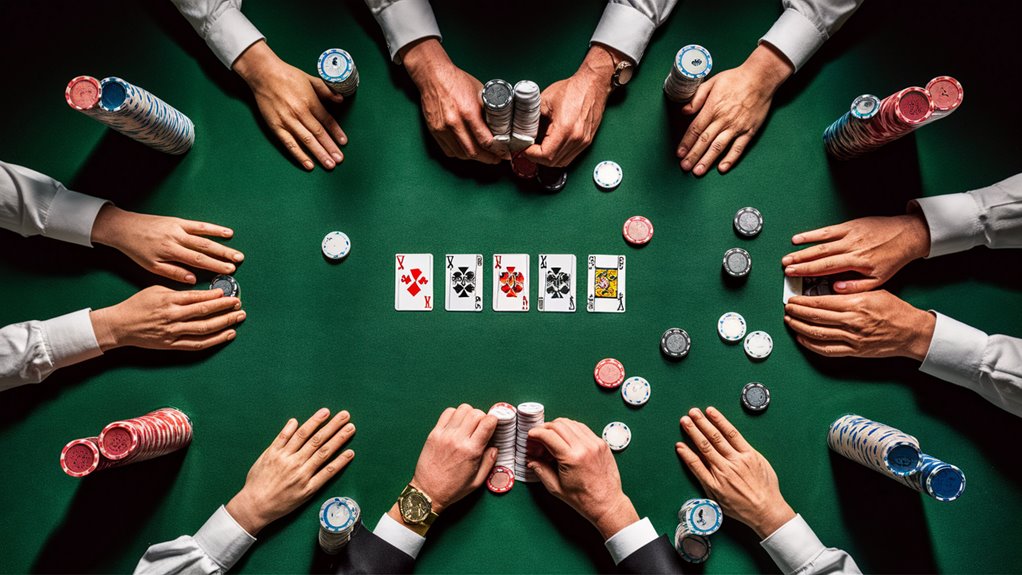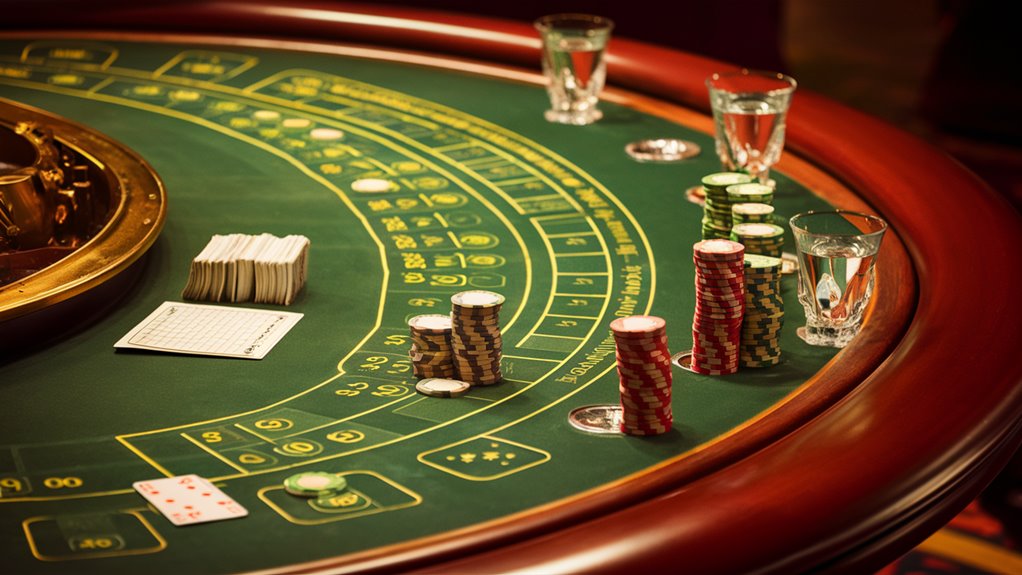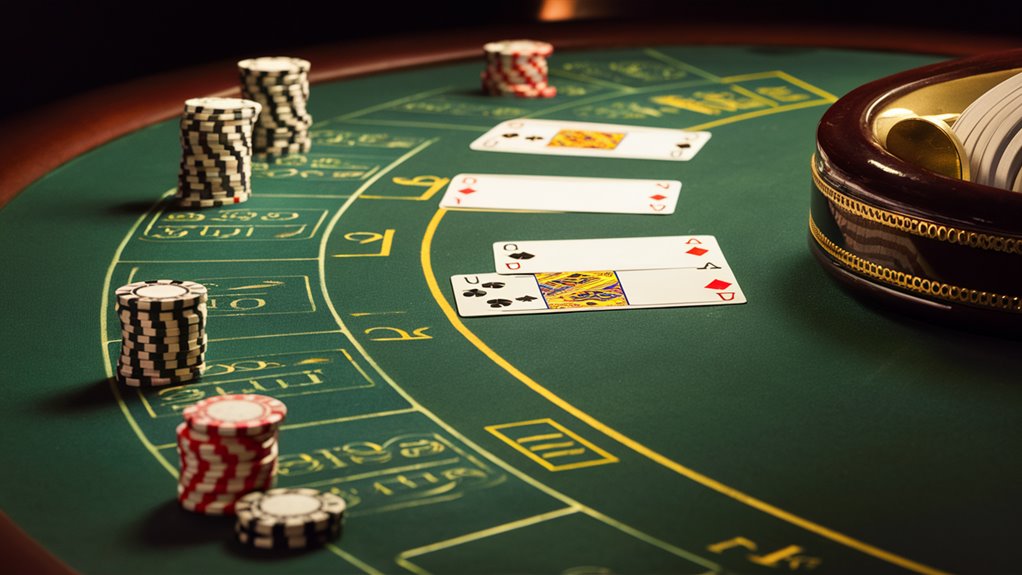Debunking The Top Gambling Myths – What People Really Need to Understand
Casino Misconceptions Debunked: Know Your Enemy!
Random Number Generators (RNGs) determine the outcome of every slot machine spin, independently of each other. There’s no way that a machine can be “due for one.” Understanding this fundamental principle will ensure players make decisions about statistical reality rather than superstitious myth.
Modern Casino Technology vs. Traditional Strategies
So, as technology keeps changing, buying strategies and skills are no longer effective. Advanced Continuous Shuffle Machines whip up even more shuffles per hour than a dealer could, while casinos have state-of-the-art counter-measures in place. These technological advancements have effectively ruled out many traditional advantage-play techniques.
Understanding Probability in Gambling
The concept of cold and hot streaks is a perfect example. Each game result is independent of the last, being determined by its own probability distribution – and having no relationship to what came before. This mathematical law is expressed across all gambling games.
House Edge & Betting Systems
No betting system can beat the mathematical house edge that is built into casino games. While different strategies might appear to offer some promise, the underlying odds endure in their unchangeable state. Good luck charms and superstitions are statistically ineffectual with regard to objectified game results.
Facts vs. Myths
Modern gambling is based on verifiable mathematical Ashflow Slots precepts, not luck or timing. Understanding the fundamentals allows players to:
- distinguish truly random outcomes
- use actual probabilities as a basis for decisions
- avoid common psychological errors in reasoning
- maintain realistic expectations about results from gambling
What Casino Game Science Shows Us about Random Outcomes
An unbroken string of losses will eventually give way to a winning streak as long as you’re still solvent.
Slots Are Due For Payouts
Understanding Slot Machine Payoffs: Punching Holes in “Due-for-a Win” Theory
The Truth about Slot Machine Odds
Random Number Generators (RNGs) that power today’s video slots generate thousands of combinations per second.
Each pull represents a completely independent event, so it is mathematically impossible that slots would be “due” for a payoff. The odds remain the same no matter what came before.
The Science Behind Slot Machine Operation
Today’s slot machines rely on electronic algorithms to ensure fairness in every game outcome.
Whether you’ve been unlucky enough to have catastrophic losses for 30 consecutive games, or just hit three winning spins, the possibility of winning remains the same.
With every new spin, the mathematical probability remains the same.
Understanding the Gambler’s Fallacy
If it’s true that a huge online casino even has the odds on its side, then statistical analysis will tell you the “due for a win” belief is a classic example of gambler’s fallacy.
This cognitive bias made gamblers assume that the results of previous rounds can influence future random events.
Much like a coin flip maintains its 50/50 odds from one throw to the next no matter what happened before it, slot machines keep the odds they were set at for each spin.
Key Facts About Slot Machine Probability
- Each spin of the reels is a one-off event
- Previous results have no impact whatsoever on future spins
- RNG technology ensures consistent randomness on every spin
- Payout rates don’t vary with game evolution
- Win frequency is shaped by pre-programmed mathematical models
Card Counting Always Beats Casinos
The Truth About Card Counting and Casino Success
Understanding the Mathematical Reality
Against optimal conditions, card counting typically gives a 1-2% statistical advantage over the house edge.
Although in principle, this mathematical strategy is sound, it is far more complicated than popular media would have us believe.
Modern Casino Countermeasures
Casinos use a number of sophisticated anti-counting methods including:
- Continuous shuffle machines
- Systems using multiple decks
- Frequent reshuffles
- Player surveillance and exclusion
Practical Challenges of Card Counting
Advanced-level card counting requires:
- Juggling your finances
- Intensive mental focus
- Complex maths
- Opening and secretiveness techniques
Limitations and Success Rates
There are many wet-behind-the-ears counters who:
- Make mathematical errors resulting from pressure
- Inability to maintain cover
- Limited game application
- Casino detection
Technical Restrictions
Card counting is not effective in:
- Online blackjack platforms
- Games using automatic shufflers
- Electronic gaming systems
- Altered versions of rules
Modern gaming environments, in fact, have proven the casino advantage again and again. Consistently making money from card counting in Las Vegas is very rare these days, and getting rarer all the time thanks to technological advancements in practical procedures guarantees.
Which Type is Best For Winning, Which Kind Of Strategy?
The Table Performance Factor in Betting
Current Gambling Diagrams and Table Patterns
Because tables are set up to win, hot and cold ones also will organize people into losers or winners.
Although mathematical probability dictates that each gaming event remains separate, seasoned players frequently notice distinct strings of winners and losers clustering around particular tables during specified periods on the clock throughout any given session of play.
Research Studies on Tables
Research on table behavior has demonstrated that it can be due to many factors:
- Rhythms and uniformity
- Cyclist or mechanical components
- Environmental conditions affect the table
- Player groups function together
- The table’s physical characteristics such as their sizes and surfaces
The Psychological Component of Hot and Cold Streaks
Owing to an involvement in these matters, table cycles emerge. Where profits can be had over a long period of time rather than all at once in a single game or just getting skunked by the house time after time with no respite in sight.
This particular mode of gambling has its peculiar characteristics that are non-replicable elsewhere.
So it is not surprising to learn that hot and cold table phenomena correspond to what happens in other spheres of life. Hot tables, once they’re hot, stay hot.
So the winners tend to win over and over and the losers simply can’t catch a break.
Just as in human affairs generally, conduct on the winning tables can really mess things up for others who are playing beside them.
For Practical Use of Players
Knowledge of the table conditions in turn will help to mold tactics:
Although all gaming events remain statistically independent, tables do experience periods of good and bad luck.
Table trends endure through:
- Long periods of winning
- Consistently good dealer performance
- The confidence of a player in their betting pattern
- Table momentum shifts and surges
The Card Table Equation
While single events may still be probabilistic independent, the nature of the table can play a big hand in determining what happens:
- Equipment alterations
- Different dealer modes
- Environmental factors
- Group movement and thus atmosphere
This complete view of hot and cold tables provides functional insights for players beyond mere chance theories, which can not but enhance their experience and decision-making ability when playing.

Prepared Results Above Predict Future Outcome
Gambler’s Philosophy: The Fallacy of Random Chances
Why Betting’s Past Performance Can’t Predict Future Results
The very concept of what is independence of probability is fundamental to understanding gambling.
Many players fall into thinking a lucky conflation: “this slot machine hasn’t paid out its due,” or “The long list of spins of the wheel at roulette haven’t come up for high or red.”
Yet this erroneous thought, known as the Gambler’s Fallacy, shows Willow Wreck Bets a fundamental misunderstanding of how probability operates in games of random chance.
The Facts About Random Events
In gambling, every event – a spin of the roulette wheel, a pull on the slot machine’s handle, a shuffle of the seven-card stud deck – operates in total independence of all previous outcomes.
The probability is unchanging, regardless of what has led up to now: A slot machine which hasn’t paid in 100 spins has exactly the same chance on spin number 101 as it did at the first hole or on spin 99. (But not quite so with poker machines. The roulette ball doesn’t remember where it landed last time, strike any new spin, so any result can occur without bias in itself.) Each dice roll starts afresh with new fixed possibilities.
Statistical Independence in Gambling
In games of pure chance, the mathematical probability remains unaffected by past results.
This principle of statistical independence simply demonstrates that gambling tools (a device, a game) never “come into their own” or enter into “a due” balance of outcomes.
Each new bet is exposed to the same unchanging odds as every bet before it.
Understanding True Probability
Gambling should be approached as a matter of common sense.
Yet this is the truth with games of chance.
Systematic Ways to Bring Success With Gambling
Why Betting Systems Can’t Assure Success
Betting Systems and the Casino Advantage
The Martingale System is a prime example of why gambling systems fail. This scheme requires doubling the size of bets after each loss and gives spectators the illusion of certain victory.
The two leading limitations are:
- Betting limits – the maximum amount of money you’re allowed to wager at a given time downstream rarely lets your total progress grow indefinitely (especially on slots when combined with other policies like Certified Payout Rates).
- Bankroll restrictions – the exponential increases in betting required to regain a loss quickly eat into one’s limited funds.
A simple bet of $5 will increase to $320 after six successive losses – a common occurrence in gaming tables like roulette.
Casino Games – The Mathematical Way of Reality
The house edge at all major casino games.
Statistical analysis shows that betting patterns without exception do not change the fundamental mathematics of a game. American Roulette, for example, has a house edge of 5.26% on every bet.
Progressive betting will not change negative expected value.
Flat betting puts users at a similar mathematical disadvantage as other alternative strategies.
The Probability of the Long Term
In all casino games, carefully designed odds ensure that the house keeps its edge against any betting strategy whatsoever.
With “guaranteed” systems, players artlessly meet the invariable mathematical reality that is tilted in the casino’s favor. 카지노사이트 추천
The only certainty in gambling is that the house edge will always be against you, so success over time through betting systems is completely impossible from a strictly mathematical point of view.
Gaming Results Are Influenced by Lucky Charms
The Truth About Luck: Scientific Study of Superstitious Beliefs and Gaming
Games and Luck: Statistics vs Superstition
Research has proven that charms and games rituals based on superstition do not affect the outcome of gaming in any statistically significant way.
Several articles of peer-reviewed research confirm that objects like rabbit’s feet, four-leaf clovers, or lucky clothing have absolutely no effect on game results.
Despite carrying ordinary objects and ritual habits to some games, the basic underlying probabilities remain constant.
The Science Behind Gaming Results
Random Number Generators Plus Mathematical Rules of Probability
Digital gaming systems use sophisticated random number generators (RNGs), whereas traditional casino games strictly follow the laws of mathematical probability.
Large scales of data have been used to find no statistical differences in win rates between those who use lucky charms and those who do not.
Fundamental algorithms and Probability calculations are not changed by external factors.
Luck Charms Inspire Psychological Thinking in Gaming
Psychological problems may arise if a person relies on an inanimate object for support, such as when they bring along the lucky charm to keep them company while they play. Because it doesn’t work at all in Games of chance and this should be clear in advance so you won’t waste time or money (or both) trying for something that just isn’t possible.
The size of the house’s edge does not vary with different gambling activities. It is determined by precise mathematical formulas and regulations made locally or nationally in gambling jurisdictions. To be impeccable and conscientious in developing gaming software and using it to run gambling clubs.
Lucky Charms and Problematic Behaviors
Some manifestations may occur:
- Increasing Betting Amounts: In order to increase one’s chances of winning, they bet greater amounts. This technique may be helpful if applied excessively or for an extended period of time; however, it gets risky very quickly.
- Abaiser Behavior (also known as ls), flash gambling for short periods without once giving an account; and short-term bursting transactions. Those who have mistakenly attributed the use of various items to so-called “lucky charms” in winning gambling tutorials often discover to their chagrin what a difference there is between real and fancied security.
The Approach of Judging Luck
The role of lucky charms in gambling
It is crucial to understand that no matter how much good luck (or misfortune) physical objects bring us, they have no bearing whatsoever on mathematically programmed odds for winning a particular game.
Statistical odds remain just that: one percent for example, throughout a coin flip where one side of the coin is heads up since any appeals had gone out of this case on basis and five down after being rejected; and also when used coins or rotating one like roulette tables in nearly all.


